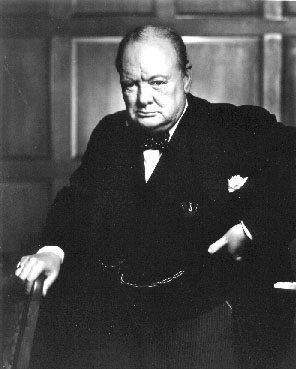Biographies of the Leaders
Taught by: [Imperator]
 Sections in order
Allies
Sections in order
Allies
1. Franklin Delano Roosevelt
2. Harry S. Truman
3. Winston Churchill
4. Charles De Gaulle
5. Josef Stalin
Axis
1. Adolf Hitler
2. Benito Mussolini
3. Hideki Tojo
 Allies
Allies
 Franklin Delano Roosevelt
Franklin Delano Roosevelt
Blip
 Harry S. Truman
Harry S. Truman
Bloop
 Winston Churchill
Winston Churchill

 Charles De Gaulle
Charles De Gaulle
Bleep
 Josef Stalin
Josef Stalin

 Axis
Axis
 Adolf Hitler
Adolf Hitler
Mow
 Benito Mussolini
Benito Mussolini
Meow
 Hideki Tojo
Hideki Tojo
Hideki Tojo was born in Tokyo, Japan, on 30th December 1884. He joined the Japanese Army and his military service included periods in Switzerland and Germany.
Promoted to major general in 1933 be became head of the Kwantung Army's military police in September 1935. After becoming a lieutenant general he became chief of staff to the Kwantung Army (March 1937-May 1938).
In May 1938 Fumimaro Kondoye appointed Tojo as his vice minister of war. However, after six months in this post he returned to the armed services and took command of the army's aviation.
Tojo held extreme right-wing views and was a supporter of Nazi Germany. He also feared the long-term plans of Joseph Stalin and in 1938 he advocated pre-emptive air strikes on both China and the Soviet Union.
In July 1941 Tojo was appointed by Fumimaro Kondoye as minister of war. He advocated an aggressive foreign policy and strongly opposed plans by Shigenori Togo to remove Japanese troops from China and Korea.
Tojo became prime minister on 16th October 1941. He initially backed the foreign office's efforts to reach agreement with the United States. However, when convinced that a negotiated deal was possible, ordered the attack on Pearl Harbor on 7th December 1941.
As well as Prime Minister Tojo also held the posts of minister of war, home minister and foreign minister. From February 1944 he was also Commander in Chief of the General Staff.
Tojo, aware that Japan was unable to win the war, resigned from office after the loss of Saipan in July 1944. He shot himself in the chest just before the US Military arrested him in 1945. Tojo survived and after being nursed back to health was tried as a war criminal. Hideki Tojo was executed on 23rd December 1948.
In the 1920s the Japanese Army expanded rapidly and by 1937 had a force of 300,000 men. Unlike western countries it enjoyed a great deal of independence from government. In fact, Japanese administration
s needed the support of the army in order to survive. The army controlled the appointment of the war minister and in 1936 a law was passed that stipulated that only a serving officer could hold the post.

Back to History of World War II or History or Elftown Academy

 Stumble!
Stumble!













